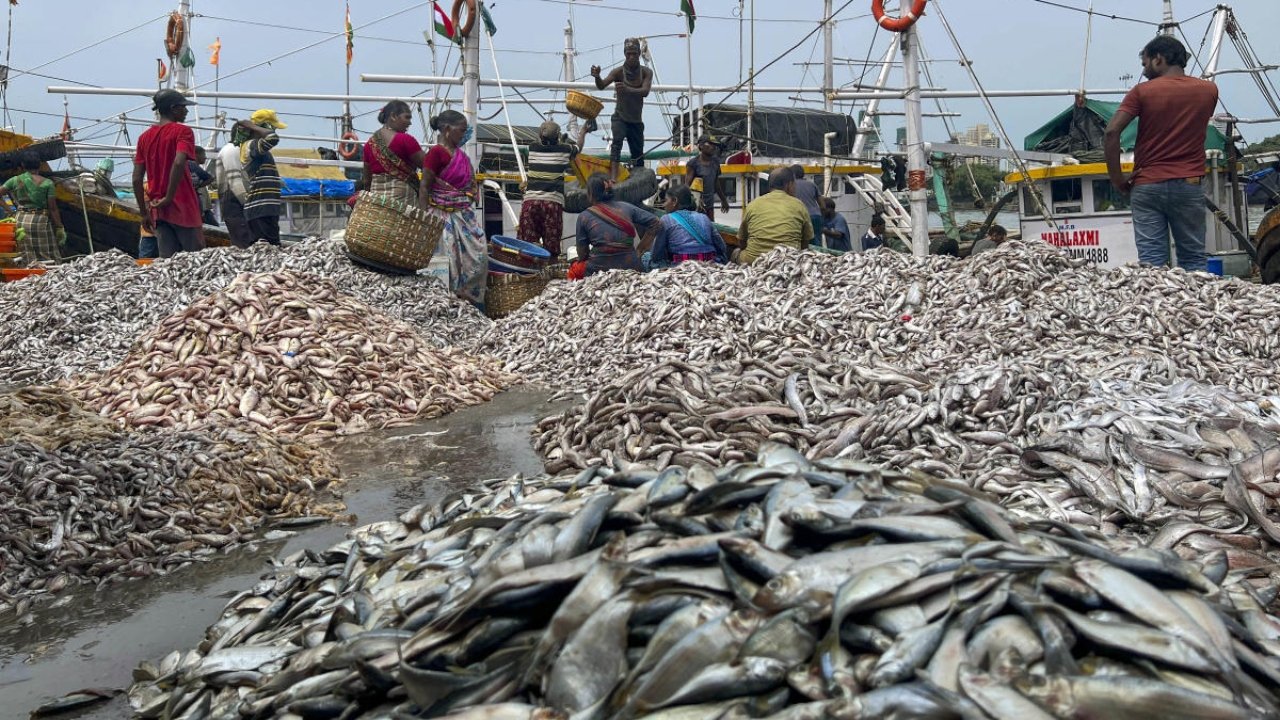
Persistent “conflict of interest” allegations against scientific experts have stalled India’s agricultural biotechnology progress, even as global competitors race ahead. Cotton is the clearest example of this paradox. While Australia has approved its fifth-generation biotech cotton and China is advancing its third, Indian cotton farmers remain trapped in policy deadlock.
Once a global leader in cotton production and exports, India now faces declining yields, pest resistance, and rising production costs. Frustrated farmers are increasingly shifting from cotton to water-guzzling paddy, while the nation’s textile industry, once self-reliant, now depends heavily on imported cotton — eroding India’s competitive edge in the global market.
For over two decades, India’s biotech progress has remained hindered by the recurring controversy of “conflict of interest” in GM crop regulation. Despite evaluation committees comprising the nation’s foremost scientists nominated by key government departments, activist groups have shaped public perception and influenced policymakers, the media, and even the Supreme Court of India.
A writ petition filed in 2004, focused on conflict of interest claims, remains unresolved after 21 years — leaving both the judiciary and agricultural innovation in limbo. Most GM crop decisions eventually reach the Supreme Court of India, including GM mustard, approved for environmental release by the GEAC on 25 October 2022. The Court, on 4 November 2022, directed the government not to take any precipitous action. “Tarikh par Tarikh” — the Hindi phrase for endless legal delays — has continued for three years, with a status quo order still in force for GM mustard cultivation.
As a result, India remains stalled in biotech advancement, relying solely on first-generation Bt cotton approved in 2006, while the rest of the world — including Argentina, Brazil, the United States, China, and Australia — advances with next-generation genome editing and GM technologies in major crops such as soybean, maize, cotton, and canola, as well as high-yielding, nutritious fruits and vegetables.
How India’s GM regulatory system works
To understand where India’s progress falters, it helps to look at how the system works.
India’s apex regulator, the Genetic Engineering Appraisal Committee (GEAC), is a professional, multidisciplinary body comprising representatives from various ministries and experts in molecular biology, toxicology, ecology, and environmental sciences. Its mandate is to ensure GM crops are evaluated through a science-based process under the Environment Protection Rules (EPA) notified by the Ministry of Environment, Forest and Climate Change (MoEF&CC) in 1989 and periodically updated.
Before reaching the GEAC, GM crops undergo biosafety testing by the Review Committee on Genetic Manipulation (RCGM), administered by the Department of Biotechnology (DBT), which includes some of India’s most distinguished scientists. These multilayered evaluations uphold the highest standards of scientific scrutiny, transparency, and biosafety.
The regulatory structure, however, has two key limitations. The GEAC is chaired by a bureaucrat rather than a scientific expert and can only recommend environmental release to the MoEF&CC, rather than grant approval directly — adding an extra layer that slows progress. Public consultation is also integral to the GMO regulatory system, allowing NGOs, civil society, and citizens to express their views.
However, embedding such groups within scientific bodies, as demanded by some activists, risks politicising the process, introducing biases, and delaying outcomes. The current framework appropriately balances stakeholder input with evidence-based evaluation.
Both GEAC and RCGM continue to function as science-driven regulatory bodies committed to biosafety and public interest. Constructive dialogue after scientific review can effectively build trust and transparency, following best practices adopted by countries that have successfully deployed GM technologies.
Why India’s biotech growth remains stalled
The persistent narrative of “conflict of interest” and perceived bias has choked India’s biotechnology regulatory system. Since 2006, the GEAC has not delivered a conclusive decision on any new GM crop except for the environmental release of GM mustard in 2022, which too was halted soon after.
It is deeply unfortunate that India no longer sees visionary leadership of the kind once embodied by Dr M S Swaminathan, who had the courage to challenge political narratives and bureaucratic rigidity and uphold scientific merit.
It is ironic that while the evaluation processes for pharmaceuticals and agricultural biotechnologies are largely comparable in scientific rigour, only the latter remains persistently stalled under the pretext of “conflict of interest”.
India’s Drug Controller General of India (DCGI) has approved over 50 recombinant biopharmaceutical products, whereas the GEAC has approved only one — Bt cotton — since its inception. In fact, the same principles of evaluation and approval should apply to GM crops and other advanced agricultural technologies.
Regulatory authorities should have complete autonomy and accountability in evaluating biosafety and performance, free from non-technical interference. Public consultation, while essential in a democracy, must follow the completion of scientific validation — at the stage when broader considerations such as ethics, affordability, and trade implications are addressed. Only then can India restore confidence in its regulatory system and reclaim its leadership in agricultural biotechnology.
Can India manage conflict of interest without hurting science?
While concerns about “conflict of interest” are not without merit, they have become a trap. Certain groups have successfully convinced policymakers and the public that subject-matter experts in biotechnology are inherently conflicted — implying that only non-experts should evaluate GM technologies. Such an approach is neither rational nor practical.
The concern of bias can be effectively addressed through recusal — experts directly or indirectly involved in a GMO product’s development should abstain from evaluating their own work. The Supreme Court of India must conclude the long-pending writ petition on GMOs and direct regulatory agencies to mandate recusal for experts evaluating GMOs or other high-tech products. This globally accepted practice ensures both scientific rigour and integrity.
Experts also bear a moral responsibility to declare any conflicts of interest. There have been instances where agricultural scientists, particularly post-retirement, are part of QRT or RAC committees (Quinquennial Review Teams and Research Advisory Committees of the Indian Council of Agricultural Research) or AICRPs (All India Coordinated Research Projects) while simultaneously working with private-sector seed and biotech companies.
There is nothing wrong with such engagements, but full disclosure must precede any assignment to ensure transparency and ethical governance. The private sector should not be seen as the villain, and the principles of disclosure and recusal must apply equally to everyone.
Only qualified experts can evaluate the safety of GMOs or other high-tech products, while public consultation should focus on broader societal considerations. If India fails to modernise its biotech approval system soon, it risks losing not only innovation leadership but also long-term agricultural competitiveness.
Bhagirath Choudhary and CD Mayee are from the South Asia Biotechnology Centre (SABC), Jodhpur
Source : Business standard






